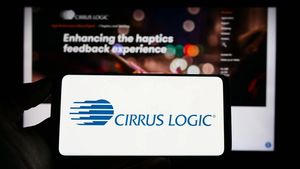TORONTO, ON / ACCESS Newswire / September 25, 2025 / The field of archaeology is in the midst of profound transformation, and few voices are shaping this shift more powerfully than Lindsay Martel Montgomery, Associate Professor of Anthropology at the University of Toronto. The publication of her latest co-authored article, Questions Worth Asking: Un-disciplining Archaeology, Reclaiming Pasts for Better Futures in American Antiquity, marks not only a scholarly milestone but a call to action for rethinking the structures, methods, and narratives of the discipline itself.
The article is now available as an Open Access pdf through Cambridge University Press, making it accessible to scholars, students, and the public who are eager to engage with questions of equity, accountability, and responsibility in archaeology. For Montgomery, accessibility is central. Scholarship, she argues, must reach beyond academic silos and speak directly to the communities whose histories are most at stake.
Rethinking the Discipline
In Questions Worth Asking, Lindsay Martel Montgomery and her colleagues interrogate the traditional boundaries of archaeology and anthropology. For generations, the field has been organized around disciplinary divisions that reflect Western ways of knowing and categorizing the past. These divisions have too often silenced Black and Indigenous perspectives, marginalized non-Western worldviews, and reinforced hierarchies of authority in knowledge production.
Montgomery and her co-authors take aim at these entrenched practices. They argue for what they call "un-disciplining archaeology"-a deliberate move away from rigid structures that dictate what counts as valid evidence, whose voices are privileged, and how history is interpreted. By placing oral histories, lived traditions, and relational philosophies at the center of archaeological interpretation, the authors propose a framework that is more inclusive, more accountable, and ultimately more impactful.
Decolonizing Archaeology in Practice
The article builds on Lindsay Martel Montgomery's long-standing work with Indigenous communities across North America. Her collaborations with groups like Picuris Pueblo in New Mexico and Hopi tribal members in Arizona demonstrate how oral histories and personal narratives can be brought into direct dialogue with archeological evidence and cultural landscapes.
This integration is not about "adding" Indigenous perspectives into existing frameworks but about fundamentally restructuring the frameworks themselves. In her words, "We cannot simply bring more chairs around a broken table. We need to build a new table that works for everyone around it."
This commitment to decolonizing archaeology resonates throughout her career. Montgomery has consistently advocated for Indigenous data sovereignty, trauma-informed research practices, and decolonial approaches that align with the United Nations Declaration on the Rights of Indigenous Peoples (UNDRIP). Her work challenges institutions-universities, museums, and heritage organizations-to dismantle colonial legacies and replace them with systems grounded in reciprocity and collective empowerment.
Why This Article Matters Now
The timing of Questions Worth Asking could not be more significant. Across the globe, archaeology and heritage studies are facing urgent calls for accountability. Communities are demanding the return of ancestral remains, the repatriation of cultural objects, and the recognition of historical harms caused by extractive research models. At the same time, public trust in academic institutions is being tested, with many asking whether scholarly work genuinely serves the people it studies.
Lindsay Martel Montgomery responds directly to these concerns. Her article underscores that archaeology is not just about reconstructing the past-it is about shaping futures. By reclaiming pasts through inclusive, community-centered approaches, she argues, the field can build futures that are more equitable and just.
The article's title, Questions Worth Asking, is itself an invitation. It asks archaeologists, students, and institutions to reconsider not only how they research but also why they research and who benefits from the knowledge produced.
From Classrooms to Communities
As a professor at the University of Toronto, Lindsay Martel Montgomery is embedding these principles into teaching. Her courses challenge students to grapple with ethical dilemmas in heritage management and to see oral histories and community knowledge as essential sources of evidence. She regularly brings Indigenous knowledge holders and BIPOC scholars into the classroom, ensuring that students are exposed to a diversity of perspectives from the outset of their training.
Many of her students have gone on to conduct community-based research themselves, carrying forward her commitment to reciprocity and accountability. In this way, Montgomery's impact extends beyond her own scholarship-she is shaping the next generation of archaeologists who will continue to push for structural change.
A Broader Body of Work
The publication of Questions Worth Asking is the latest milestone in a career already marked by innovation and influence. Lindsay Martel Montgomery has authored numerous articles, book chapters, and public-facing essays that bring complex theoretical debates into dialogue with practical, community-grounded applications. She has received funding from the Wenner-Gren Foundation, the National Science Foundation, and the Social Sciences and Humanities Research Council of Canada (SSHRC), all of which have supported her collaborative projects with Indigenous communities.
Her work has appeared not only in leading academic journals but also in public outlets like SAPIENS and community heritage platforms. This dual presence reflects her commitment to bridging scholarly rigor with accessibility. For Montgomery, research must not only advance theory but also contribute to real-world change.
Looking Ahead
With the publication of this article, Lindsay Martel Montgomery is looking toward the future. She plans to continue expanding collaborative research projects that integrate digital archiving, heritage education, and community-driven fieldwork. She also remains focused on policy impact, working with institutions to design frameworks for ethical heritage care and data governance.
The edited volume emerging from the Amerind Foundation workshop, to be published by the University of Arizona Press, will further extend her influence. Taken together, her scholarship is redefining archaeology for the twenty-first century, showing how the discipline can evolve into one that not only studies the past but actively contributes to more equitable futures.
About Lindsay Martel Montgomery
Lindsay Martel Montgomery is an anthropologist, archaeologist, and consultant specializing in Indigenous heritage, collaborative research, and ethical cultural resource management. She is an Associate Professor of Anthropology at the University of Toronto and earned her Ph.D. from Stanford University. Her projects across North America focus on community-engaged practice, Indigenous data sovereignty, and decolonial approaches to heritage.
In addition to her academic role, Montgomery consults widely with museums and nonprofits , offering expertise in ethical research design and inclusive engagement. She has been featured in the University of Toronto's Getting to Know Professor Lindsay M. Montgomery series and profiled on IdeaMensch for her innovative contributions to archaeology and anthropology.
Her latest co-authored article, Questions Worth Asking: Un-disciplining Archaeology, Reclaiming Pasts for Better Futures, exemplifies her ongoing commitment to transforming the discipline through equity, respect, and community collaboration.
For more information, please visit, https://lindsay-montgomery.com/
CONTACT:
Lindsay M. Montgomery
https://www.linkedin.com/in/lindsay-montgomery-38329b344/
email: lindsay.montgomery@utoronto.ca
SOURCE: Lindsay Montgomery
View the original press release on ACCESS Newswire







